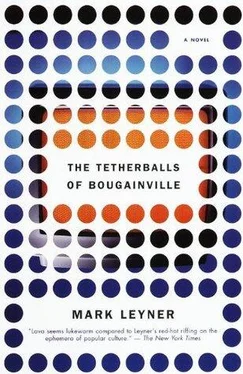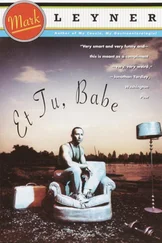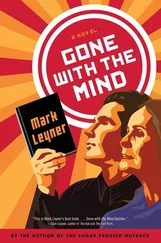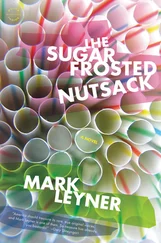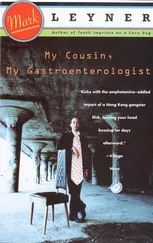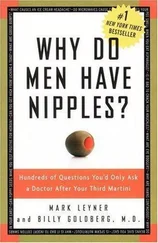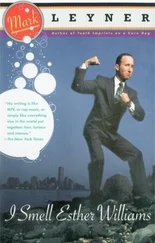“Fuck,” I mutter, and toss the magazine atop a pile.
Have you ever read an article in People that was so perfectly suited to your interests that it seemed as if the writer had intended it exclusively for you, so that you could — in the way that mentally disturbed individuals glean divine messages from advertising jingles or laundering instruction labels — perhaps derive some subliminal or encrypted communication or some secret gnostic insight? That’s how I feel about this particular article.
I can’t tell you how many afternoons I’ve frittered away contemplating what it would be like to be held captive and abused by various groups of fanatical and/or unbalanced and/or unwashed women. For a while, it’s all I talked about, which I realize became rather tedious for my parents. I remember one night at the dinner table, I was going on and on about what it might be like to get kidnapped and tormented by a group of rogue policewomen, when my dad interrupted me and said, “I didn’t think I’d ever hear myself saying this, but — could we talk about Napoleonic War muskets [my previous fixation] for a while?”
Actually my parents were pretty cool about it, though. In fact, they got me a subscription to one of these young-adult book series called Around the World With Rusty Hoover . In each book, this kid Rusty Hoover — who’s about my age — invariably finds himself mistaken for someone else and then gets abducted by gorgeous women who torture him. Like in Rusty Hoover Goes to Peru , Rusty’s on vacation with his parents, and he’s misidentified as a Peruvian Treasury officer, captured and brutally interrogated for weeks in a sweltering Lima apartment by giggling cadres at a Shining Path pajama party. In Rusty Hoover Goes to Portugal , Rusty’s on vacation in the Algarve with his parents, where he’s erroneously targeted as an unethical shipbuilding magnate by an underground cell of shrouded fishermen’s widows who turn out to be particularly sadistic and horny. There’s Rusty Hoover Goes to Law School , where Rusty accompanies his parents to visit his older sister Tara at law school, and he’s confused for some pervert who’s been sending pornographic E-mail to fellow students in his Patents class, and he’s forced to sign a confession in his own prostatic fluid, subjected to pseudoscientific experimentation, and flogged by Professor De Brunhoff — a loose composite of Catharine MacKinnon and Lisa Sliwa — and her frothing acolytes. And then — one of my favorites— Rusty Hoover Goes to Indiana , in which, en route to Yellowstone Park, the family car’s cruise control malfunctions on Route 70 near Terre Haute, where Rusty’s mistaken for a locker-room Peeping Tom by a women’s fast-pitch softball team that has just completed a double-header in 100-degree heat and that — in the words of the jacket copy—“teaches Rusty a lesson in pine tar and voyeurism he’ll never forget.”
But until I read the article in People magazine, this sort of thing had only existed for me in fiction and in my own febrile fantasies. And now I see that it’s actually happened to some guy who was lucky enough to be in Moscow at just the right dinner party. But who is he?
Isn’t it one of life’s — well, maybe tragedies is too strong a word — one of life’s most vexing conundrums, that just at the exact moment that you really get into a magazine article in a doctor’s waiting room, the nurse calls your name?
The doctor’s office features standard-issue M.D. furnishings and bric-a-brac with three notable exceptions: on his desk, a photograph of a dismayed woman (whom I presume is his wife) in a gauzy lavender negligee drowning a four-inch Madagascar “hissing” cockroach with spray from a White Diamonds cologne atomizer; on the wall alongside an array of diplomas and certificates, a huge LeRoy Neiman painting of Socrates drinking his cup of hemlock; and above the credenza, a framed needlepoint of Cleopatra’s valediction from Shakespeare’s Antony and Cleopatra: “The stroke of death is as a lover’s pinch, / Which hurts, and is desired”—the cursive embroidery bordered by intertwined asps.
“I’m very sorry about your father, Mark.”
The doctor, downcast and shaken, rises from his chair and walks out from behind his desk. “I’m terribly, terribly sorry,” he says, embracing me.
Perhaps I have deferred or suppressed my emotions — numbed myself. Also — and I realize that I may have been naive or unrealistically optimistic — it simply hadn’t ever occurred to me that my dad wouldn’t respond to the lethal drugs. But now the emotions come surging forth. My eyes begin to fill. I sob, I heave, I weep unrestrainedly.
“Why did this have to happen?” I wail, clutching him.
“Mark, I wish there was a simple answer,” he says, with a reciprocal squeeze.
I unclasp his arms and step away from him.
“But everyone said it would work,” I contend with aggrieved composure.
“For the overwhelming majority of inmates, sodium thiopental, pancuronium bromide, and potassium chloride is the terminal regimen of choice and proves to be completely efficacious. Unfortunately, it was not as deleterious to your father as we would have hoped.”
“Doctor, isn’t there anything more you can do?”
“I’m afraid not.”
“What about trying other lethal drugs?”
“The only drug protocol that the Food and Drug Administration has approved for executions is sodium thiopental, pancuronium bromide, and potassium chloride.” He bristles. “There are literally scores of promising new lethal drugs in development, but each one is hopelessly mired in FDA bureaucracy. Glaxo Wellcome has a compound called Mortilax, which combines the industrial solvent carbon disulfide and a neurotoxic insecticide, pyrethrum, with death-cap fungus, but it’s bogged down in phase-one animal studies. Johnson & Johnson’s Panicidin — whose active ingredients include several nitrated derivatives of phenol, zinc phosphide (a hepatotoxic rat poison), dioxin, and tetrodotoxin (a poison extracted from the livers of Japanese blow-fish) — was sailing through phase-two human efficacy trials when the FDA declared a moratorium on further testing because the drug was apparently causing moderate new hair growth in men with male-pattern baldness. And Pfizer has a very exciting new product in the pipeline called Necrotropin, which is a year into a four-year phase-three clinical trial. Necrotropin is composed of tetraethylpyrophosphate (an insecticide that blocks the enzyme Cholinesterase, resulting in a fatal buildup of acetylcholine), caustic potash (for corrosive destruction of internal organs), santonin (an alkaloid from wormseed that causes cardiovascular collapse), strychnine (for tetanic spasms leading to asphyxia), methyl isocynate (the chemical that killed 3,000 people in Bhopal), and a concentrate of Gaboon viper venom (which is both hemotoxic and neurotoxic, causing diffused hemorrhages and respiratory paralysis). Pfizer is planning to offer it as an injectable, a transdermal patch, and a pleasant-tasting chewable tablet.
“So, potentially — and in spite of the appalling ineptitude of the FDA — the future is very bright. I emphasize the word potentially —one of the things that causes me so much anguish about the destruction of the rain forest is the possibility that we’re irrevocably losing indigenous plant toxins and venoms that could be used in the development of new and more powerful lethal drugs. But look, even if the FDA approved one of these experimental agents, there’s no guarantee that it would prove any more effective on your father than the drugs we administered today. I suspect that your father’s habitual abuse of angel dust and his hypersensitivity to gamma radiation have somehow conferred an immunity to toxins. Although I have no idea what the precise biochemical mechanisms are here, my hypothesis is that chronic anaphylactic reactions to gamma rays occurring concomitantly with sustained exposure to phencyclidine has actually altered the genetic matrix in each of your father’s cells, rendering him resistant to the lethal drugs presently available to us.”
Читать дальше
